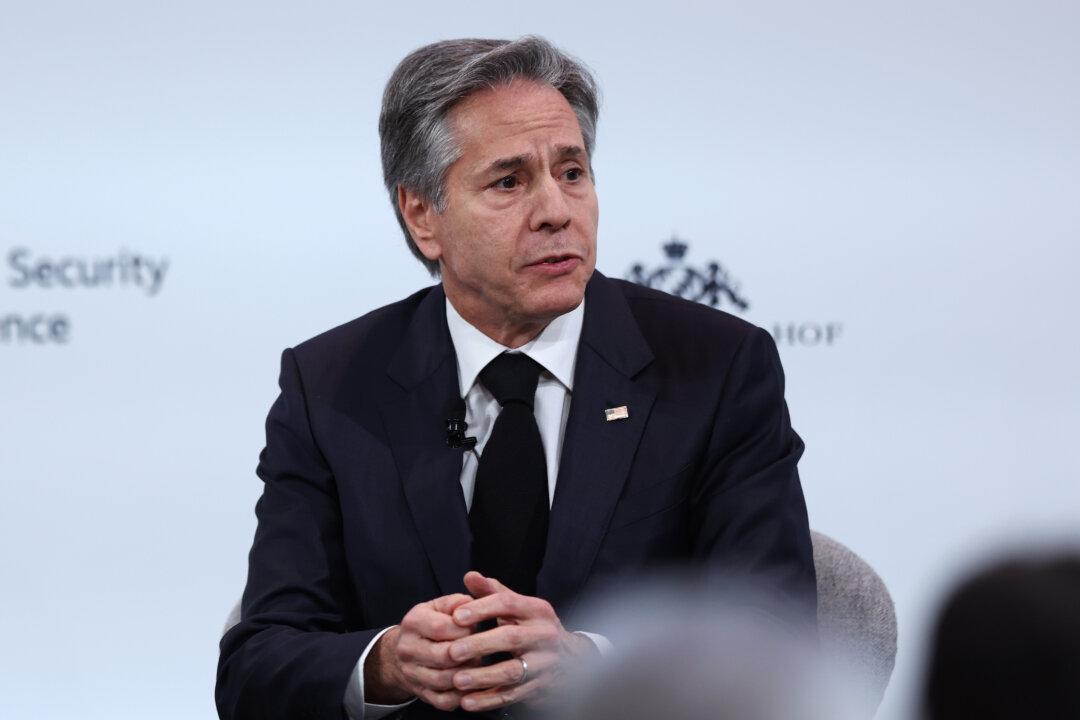The Chinese regime likely gave the green light to allow Chinese firms to provide “dual-use” support to Russia for its military aggression in Ukraine, according to Secretary of State Antony Blinken.
“There has been some non-lethal dual-use type support coming from quote/unquote ‘Chinese companies’ that almost certainly was approved by the state, because there’s really no difference,” said Blinken on Feb. 23, during an interview with The Atlantic magazine. Dual-used goods have both military and civilian applications.





